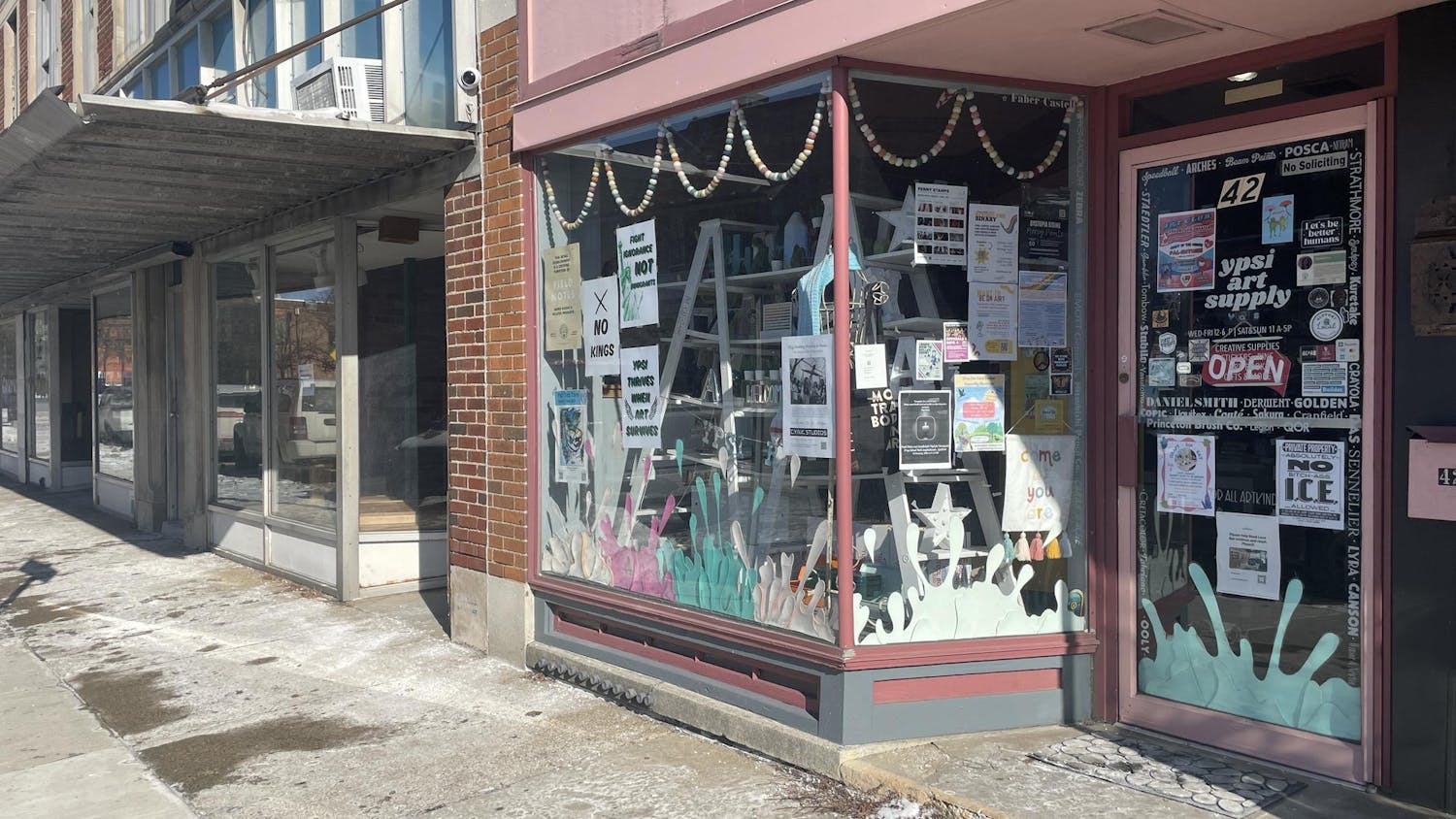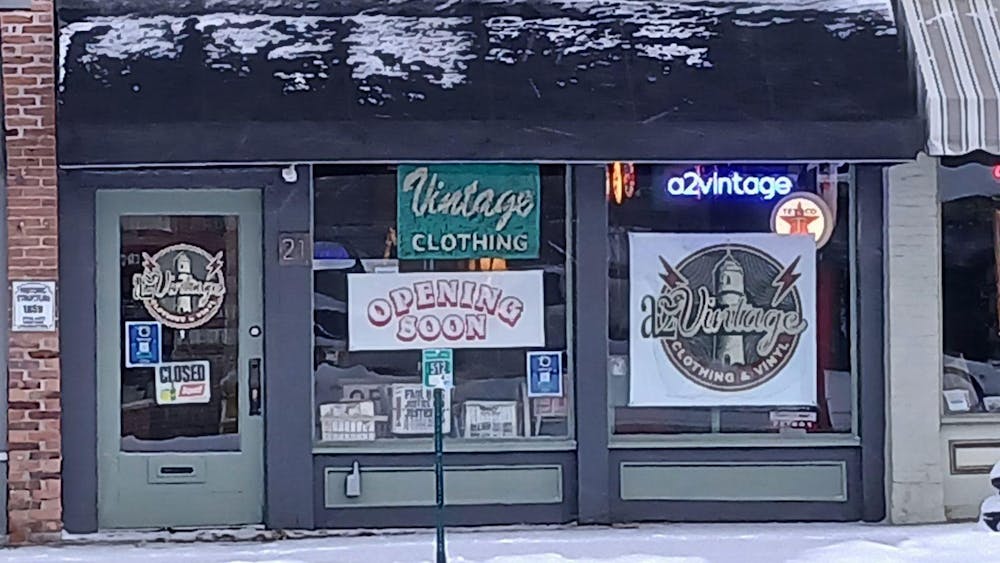Eastern Michigan University in 2022 reported 40 crimes of domestic violence, 28 cases of rape, and 16 cases of stalking in a federally required Annual Security and Fire Safety Report.
The numbers of crimes are higher than in the previous two years. The current report also indicates higher rates of crime compared to other universities within the Mid-American Conference, which includes universities in Kalamazoo, Michigan, Toledo, Ohio, and Buffalo, New York. Compared to other universities in the conference, Eastern had the highest number of aggravated assault cases on campus, the highest number of domestic violence reports, the second highest number of rape cases both on and off campus, and third highest numbers in both stalking and fondling.
Matthew Lige, the university’s Department of Safety chief, said despite those numbers the campus is safe.
"Our numbers are increasing because our students are engaged with our offices," Lige said. "And I believe that there is a level of empowerment to take a stand against the things that they know are wrong.”
The annual report is required by the Jeanne Clery Disclosure of Campus Security Policy and Crime Statistic Act, which mandates that all federally funded universities provide members of the university community information on various offenses, crimes, policies, and procedures. EMU leaders said increased reporting and education are just one of the contextual issues behind the data. Others include the reporting of cases from previous years, disturbances stemming from relationship issues, and the impact of the pandemic on activity on campus and student interaction.
"The majority of the cases represented in the ASR [crime report] are not criminal cases involving strangers and I think that is an important distinction," Lige said. "These are situations where acquaintances have had an uncomfortable physical encounter or an uncomfortable, intimate encounter, or they know each other. At some point, there was an issue over consent and then a report was filed."
Walter Kraft, the university's vice president of communications, said the university is committed to student safety.
“Student safety and student emotional well-being is the university's number one priority above all else," Kraft said. "The cameras we have on campus, the resources dedicated to Title IX, the effort to make sure people know that they can report and feel comfortable reporting. There is nothing more important to this administration and this university than making students know that they are safe and protecting them emotionally and physically."
Echoing the chief's statements, Kraft also said the numbers in the report could be misleading.
“What you are hearing here and what we would all say is, this is a very, very safe campus,” Kraft said. “These are not people coming externally off campus and assaulting our students. These are relationship-type issues, acquaintances that somewhere the communication was not all there. So, if there was somebody coming off campus and doing things like that, we would be able to spot it and track it and make contact with that person.”
Read more: EMU's DEI department has a new team of leaders looking to empower the community
Matthew Gregory, the coordinator of EMU’s Sexual Misconduct Prevention and Response Office, confirmed that a number of the cases reported for 2022 happened in earlier years.
“Keep in mind that when we get a report, not all the time is that report from that year. So, something could be reported to us that happened several years ago, several semesters ago. And we have to look into everything if the person reporting it wants us to look into it," Gregory said. "So, a lot of times what I have seen since I have been here in February, is more and more students are coming to let us know about things that happened when they were in high school, things that happened when they first started and did not feel comfortable approaching it or talking about what happened to them. And then also not knowing that they can come back at any time and still get some support."
Christine Watson, executive director of SafeHouse Center in Ann Arbor, said she was not surprised by the university's security report. SafeHouse provides free services for survivors of intimate partner violence and sexual assault.
“Unfortunately, those numbers are probably actually a little bit higher, because we still continue to see how domestic violence and especially sexual assault cases are under-reported on campuses," Watson said. "So that is my first reaction, is that those are high numbers, but they are probably not even fully representative. The second thought is obviously that it is very sad that we continue to see this high level of violence happening on our campuses, in our communities."
Watson, agreeing with Gregory, also said many sexual assault survivors tend to report late.
“We tend to see it more for the sexual assault situations versus domestic violence," Watson said. "Domestic violence I would say typically ... it will be a delayed report in terms of maybe a couple of days or something like that. But we do tend to see that happening more as the situation is unfolding and the survivor is going through the actual abuse. For sexual assault there is usually a longer delay in reporting because of a variety of reasons: People do not feel safe; they do not think they are going to leave; they have had other people go through the process and did not like what they saw or how that felt."
Survivors of violent crimes also do not always report directly to the university's Department of Public Safety. In some cases, the reports are given to what the university, under the Clery Act, defines as campus security authorities, also known as CSAs. The Clery Act requires that anyone considered a campus security authority must report Clery-defined crimes. CSAs typically include officials with significant responsibility for campus activities. However, who exactly is a CSA can change from campus to campus. For example, Kent State University, also a member of the Mid-American Conference, does not require dining staff and maintenance employees to report Clery-related incidents.
Eastern's list of required Clery Act reporters is broader.
“The other piece of it is our numbers are going to normally be higher because every person at the institution that works here is a mandated reporter and that is unique to other institutions," Gregory said. "So, that means anyone who is not a confidential person in their role, CAPS [Counseling and Psychological Services] essentially as the best example, has to report if they think something could be Title IX. And I am the person at the institution who determines if it actually is."
The annual report also shows data from the previous two years, in this case from 2020-22. Compared to those two years, EMU in 2022, saw an increase in some crimes on campus. In 2020 the university reported 13 rapes in contrast to the 28 reported in 2022. Charges of fondling tripled from 2020 to 2022. However, during both the 2020-21 and 2021-22 school years the university was under COVID-19 restrictions, and there were fewer students on campus. Gregory and Lige noted that the pandemic affected the students and the reports.
“Now that more classes are back on ground, now that more students are living on campus and they are getting comfortable with one another in different ways, we do typically see an influx of reports at the beginning of the fall and beginning of the winter semester,” Gregory said.
Lige said that from a nonscientific viewpoint, all of us were impacted differently by the pandemic.
“I think there is a resilience in our students having gone through the pandemic as teenagers and now into adulthood, and the freedoms that come along with that," Lige said.
“And maybe in society pre-pandemic, the students did not always file reports on domestic issues," Lige said. "So, I think it is symptomatic of what we went through as a nation and the students are coming here and they are taking the stand for themselves. And in a way, it is encouraging because no means no. If you see something, say something. We have promoted those ideas and those catchphrases for years, and it seems like sometimes we fall on deaf ears. But I feel like after 30 years that is starting to pay off. And our students are coming forward when maybe they did not before because they are taking some pride themselves, in the circumstance they are in, and they are taking a stand for themselves.”
Public safety education
Lige said the university and the Department of Public Safety offer a number of services designed to keep students and staff safe. The university in recent years also has increased efforts to promote safety and educate the community about consent and Title IX. The work includes the new Zeroeyes software, self-defense classes, Student Eyes and Ears for University Safety, known as SEEUS, mandatory Title IX training, collaboration with campus departments, and collaboration with the SafeHouse Center.
Watson said SafeHouse has a great connection with Eastern Michigan University.
"For instance, if you are an EMU student and you experience domestic violence or sexual assault, you file a police report, or you go to the hospital. We will get notified and then we can speak to you in that moment, either in person at the hospital or by phone," Watson said. "That is a 24-hour service as well. So that is a great collaboration with the EMU police department where if they have somebody who is finally reported or honestly, even if they just have somebody checking in with them because they are experiencing something, they will refer them to us and sometimes even do a soft handover.”
Resources:
For emergencies call 911, or university police at 734-487-1222. The university's Department of Public Safety is located on campus at 1200 Oakwood St., by the Hoyt and Pittman residence halls, and is open at all times. The department also offers protective self-defense spray and personal safety alarms with a two-minute training session.
To report any sex-based discrimination, harassment, or sexual misconduct, contact the Sexual Misconduct and Prevention Office in room 250 at the Student Center or call 734-487-9126. The office is available to anyone who wants more support or insight into Title IX-related cases.
For mental health support reach the university counseling office at 734-481-1118. Students and staff can also visit the Campus Wellness Center on weekdays from 9-5 p.m. at 75 N. Huron River Drive, by the Crossroads Market and public safety building.
To contact the SafeHouse Center dial its helpline 734-995-5444 or email info@safehousecenter.org.
Read more: Michigan Legislature approves Roosevelt Hall Renovation










